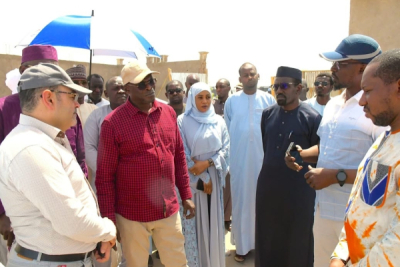African agriculture still faces numerous challenges that prevent the continent from achieving food self-sufficiency. Just as mechanization was key to the Industrial Revolution, digital technology in today's Fourth Industrial Revolution offers significant potential to transform the sector. Ethiopia is embracing this potential with an ambitious new strategy.
The Ethiopian government officially launched, on Tuesday, its Digital Agriculture Roadmap (DAR), a national plan to accelerate the digitalization of the agricultural sector, the Ministry of Agriculture said. Developed by the ministry in collaboration with the Agricultural Transformation Institute (ATI), the roadmap will be implemented from 2025 to 2032.
The government aims to enhance agricultural productivity through inclusive, accessible, and sustainable digital solutions, Agriculture Minister Girma Amente said. The strategy is designed to facilitate access to agricultural extension services via smartphones, improve input availability, strengthen financial services such as loans and agricultural insurance, and enhance coordination across the entire value chain, from production to commercialization, he said.
The DAR rollout will occur in two phases. The first, from 2025 to 2029, will focus on establishing basic digital infrastructure and developing priority services for agriculture. The second, from 2030 to 2032, aims to expand and diversify the digital ecosystem across the sector.
Authorities acknowledge that Ethiopia’s agricultural digitalization faces significant challenges, particularly limited connectivity and a lack of digital skills, which could slow technology adoption.
According to the report Driving Digital Transformation of the Economy in Ethiopia: Opportunities, Policy Reforms and the Role of Mobile, published by the GSMA in October 2024, 76% of Ethiopians still do not use mobile internet.
GSMA also estimates that smartphone penetration, a key tool in the DAR, stands at just 36% in Ethiopia. Additionally, the association rates the population’s proficiency in basic digital skills at 41 out of 100.
By Stéphanas Assocle,
Editing by Wilfried ASSOGBA



















